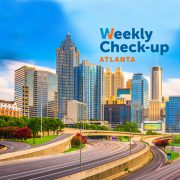Are drugs and surgery the best way to treat acid reflux?
After a recent show, a physician, colleague, and regular listener shared the below comment which I thought worth passing along. Although, I respect the logic on which these comments are based. I struggle with the absent evidence to support them. Correlation does not mean causation. Since most of the recommendations impact lifestyle and diet there is no harm in trying such an approach, but I am a student of science and I would need controlled randomized clinical trials of such an approach before I would be comfortable recommending them to patients.
-Bruce
Hey Bruce!
I heard part of your show the other day discussing your personal issues with acid reflux and your frightening family history.
I must say, however, that I completely disagree with your approach to managing it. Drugs and surgery are not always the best way.
Go back to physiology!
We do not have too much stomach acid. We are magnificently designed to have just the right amount of acid.The problem is that in today’s modern lifestyle, we have monkeyed up the works, and acid reflux sufferers have acid in the wrong place at the wrong time.
Furthermore, we have eroded our beautiful mucous lining because we are deficient in minerals (zinc absolutely required to make stomach mucus), and we take too much steroid (adrenally produced cortisol from too much stress and not enough down time).
It is a low pH signal that indicates to the pyloric sphincter to begin digestion … one-way – the right way. If you inhibit acid secretion, you only slow digestion, delay gastric emptying and increase the possibility of reflux. Yes, you will be better symptomatically, but you will never resolve the problem. You need to find ways to enhance your digestive process in the proper direction.
Remember, a meal should begin with gratitude. Say a prayer. Enjoy the colors and scent of the food. Bless those who prepared it. These cerebral measures begin the gastrointestinal ones. Wolfing fast food bypasses these steps.
Then, digestion begins in the mouth. Chew your food slowly, to allow salivary amylase to come into contact with your food.
Do you bloat after you eat? Of course additional gas bubbles in the G.I. tract are going to slow digestion and force it the wrong way. Excessive fermentation and gas suggest eating too fast and or dysbiosis.
Most of the time in those of us over 50, slow digestion is related to low stomach acid and hypochlorhydria – not high stomach acid – Take a few minutes and read about it.
Adding a tablespoon of apple cider vinegar before each meal may be just the acid signaling that you need to start the one-way flow. This is counterintuitive to almost every gastroenterologist, but go back to physiology, and it makes perfect sense.
Furthermore many of my reflux patients suffer from small bowel bacterial overgrowth. Taking adequate amounts of probiotics at least 30-100 billion-colony count can be curative. Pancreatic exocrine insufficiency is common in our age group. Adding a digestive enzyme can be curative to acid reflux.
If none of these empiric tricks are successful, a comprehensive digestive stool analysis can be performed to look at pancreatic sufficiency, ability to digest proteins, fats and carbohydrates, as well as for the presence of bacterial overgrowth, yeast, or parasites that may be inhibiting proper digestion.
Not a small number of patients diagnosed with acid reflux really have longstanding Entamoeba histolytica or other GI parasites.
So, as you can see, the cure for heartburn is not usually drugs or surgery.
– From Dr. Ellie Campbell AAFP, ABIHM


